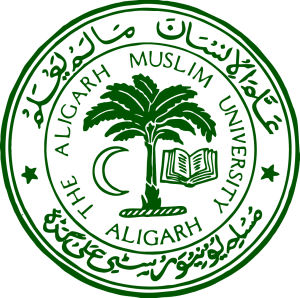Online MA In Political Science Aligarh Muslim University Aligarh
Course Duration
2 years
Admission Open
coming soon
Application Date
Closing Soon
Mode
Online
Session Duration
15-20 Hrs/Wk
Programme Overview
Master of Arts is a post-graduation course which is usually of two years duration. Candidates who possess a graduation degree can only pursue MA course.
MA is a specialized course that offers in-depth knowledge of the chosen discipline.
Programme Highlights
Career Counseling and Placement Assistance
World-class faculty and instructors
Exposure to new job opportunities
Industry Relevant Curriculum Framework
Cost Effective Quality Learning
A host of Skill Enhancement and Ability Enhancement Courses in addition to Core Courses
Enhance your Employability Quotation
Latest study material and industry-relevant curriculum designed by subject matter experts
Admission Criteria
Eligibility
- Graduate in any discipline from any University or institute recognized by Aligarh Muslim University, Aligarh.
Career Prospects
- Government Affairs Director
- Political Consultant.
- Public Relations Specialist
- Political Scientist.
- Intelligence Analyst.
- Policy Analyst.
International Relations
Comparative politics
Principles OF Public Administration
Political Thought (Ancient & Medieval)
International Law
International Politics
Political Sociology
Public Administration with Special reference to India
Political Thought (Modern)
Foreign Policy of India
Modern Indian Social And Political Thought
Contemporary Problems Of Indian Democracy
Federalism And Union-State Relations In India
Research Methodology
Contemporary Political Ideologies (Ele.)
Society And Culture Of Medieval India-(1200-1707)
History: Its Philosophy, Theory And Methodology
United Nations And World Peace
India’s Defence And Security
Federalism, Governance And Conflict Management
International Organisation
Government And Politics In South Asia (Bangladesh & Sri Lanka) (Ele.)
Viva-Voce
Recorded lectures
Live sessions with faculty and industry experts
Doubt-solving sessions
Networking with peers

Aligarh Muslim University Aligarh
The university grew out of the work of Sir Syed Ahmad Khan, the great Muslim reformer and statesman, who in the aftermath of the Indian War of Independence of 1857 felt that it was important for Muslims to gain education and become involved in public life and government services in India. Raja Jai Kishan helped Sir Syed in establishing the university
The British decision to replace the use of Persian in 1842 for government employment and as the language of Courts of Law caused deep anxiety among Muslims of the sub-continent. Sir Syed saw a need for Muslims to acquire proficiency in the English language and Western sciences if the community were to maintain its social and political clout, particularly in Northern India. He began to prepare the foundation for the formation of a Muslim University by starting schools at Moradabad (1858) and Ghazipur (1863). His purpose for the establishment of the Scientific Society in 1864, in Aligarh, was to translate Western works into Indian languages as a prelude to prepare the community to accept Western education and to inculcate scientific temperament among the Muslims. The intense desire to ameliorate the social conditions of Indian Muslims led Sir Syed to publish the periodical, ‘Tehzibul Akhlaq’ in 1870.
In 1877, Sir Syed founded the Muhammadan Anglo-Oriental College in Aligarh and patterned the college after Oxford and Cambridge universities that he had visited on a trip to England. His objective was to build a college in tune with the education system but without compromising its Islamic values. Sir Syed’s son, Syed Mahmood, who was an alumnus of Cambridge prepared a proposal for an independent university to thee ˜Muhammadan Anglo-Oriental College Fund Committee upon his return from England in 1872. This proposal was adopted and subsequently modified. Syed Mahmood continued to work along with his father in founding the college.
It was one of the first purely residential educational institutions set up either by the government or the public in India. Over the years it gave rise to a new educated class of Indian Muslims who were active in the political system of the British Raj. When viceroy to India Lord Curzon visited the college in 1901, he praised the work which was carried on and called it of “sovereign importance”
Programme Structure
Fee Structure
Total Fee
INR ₹ 21,000/-
Inclusive of all taxes
Fee Per Year
INR ₹10,500/-
Inclusive of all taxes
